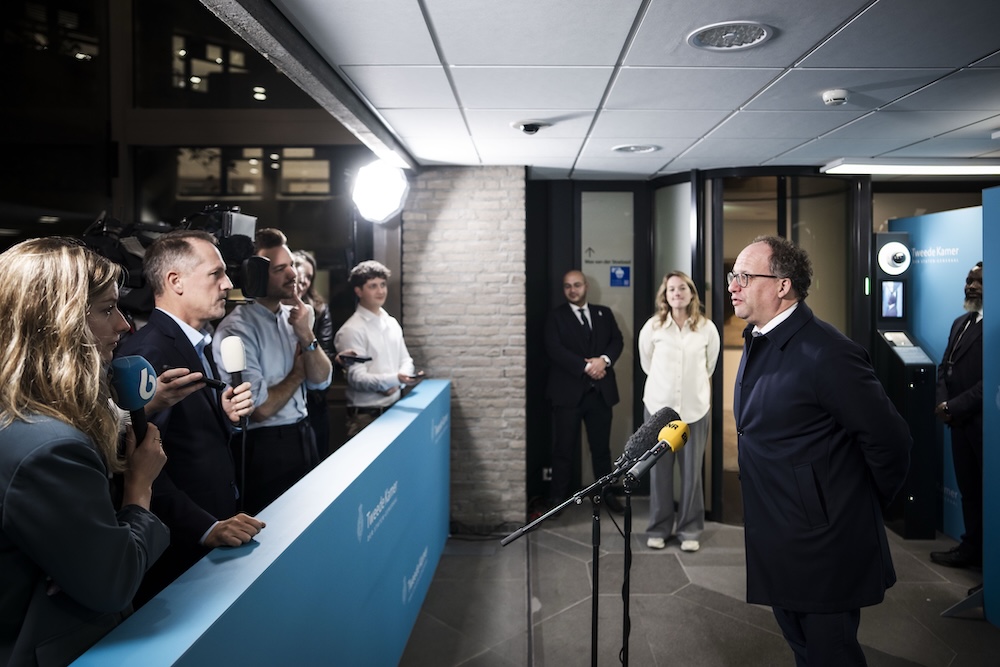Dutch coalition formation moves on, D66 and CDA to take lead?

Rumours abound in The Hague that Wouter Koolmees, who has now rounded off his talks with party leaders about the form of the next coalition government, is poised to suggest D66 and the CDA take the lead and begin working out an agreement already.
Both parties are needed for any viable coalition and, commentators say, Koolmees wants them to get started now, while the right-wing VVD and the GroenLinks-PvdA alliance wait in the wings.
Party leaders Rob Jetten (D66) and Henri Bontenbal (CDA) have said for the past two weeks that speed is of the essence to put the chaos of the past two years to bed. “I don’t think there is much point in having endless discussions about who does not want to work with whom,” Jetten said on Monday. “It is time to get stuck into a couple of big themes.”
Bontenbal has made similar comments, saying on Monday after his meeting with Koolmees that “we are not the problem”.
Dilan Yesilgöz, leader of the VVD, has said repeatedly she will not work with the left-wing green alliance GroenLinks-PvdA and that she favours a coalition with the far-right JA21 instead.
New MPs
Meanwhile, it is all change in the 150-seat lower house of parliament as around a third of the current batch of MPs bow out on Tuesday.
Their number includes the entire 20-strong NSC delegation, which was wiped out entirely at last month’s general election. They were only sworn in two years ago after the November 2023 election.
The new-look lower house will be sworn in on Wednesday.
The youngest MP will then be Etkin Armut, who was in 18th place on the CDA list and has said she wants to make women’s safety a priority.
In total, 26 MPs will be under the age of 34, compared with 15 in the previous parliament. According to Trouw, the new-look parliament will have 55 newcomers, down on the 67 first-time MPs elected in 2023 – when the far-right PVV and BBB scored well and put dozens of new faces into office.
In 1989, by contrast, just eight new MPs were elected to parliament.
The changeover is down to the highly fragmented nature of Dutch politics and there will be 25 different parties represented in parliament.
Leiden University professor Anchrit Wille told Trouw that plenty of expertise is lost when so many new MPs are elected. “You need four years to properly get worked in,” she said. “You need to understand how legislation is processed, you need to get on top of your own policy areas and build a network. And that takes time.”
Koolmees is due to present his report to parliament on Tuesday evening, and it will be debated by the new-look lower house on Thursday.
Thank you for donating to DutchNews.nl.
We could not provide the Dutch News service, and keep it free of charge, without the generous support of our readers. Your donations allow us to report on issues you tell us matter, and provide you with a summary of the most important Dutch news each day.
Make a donation